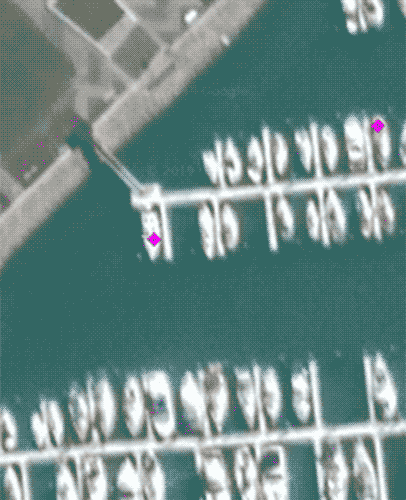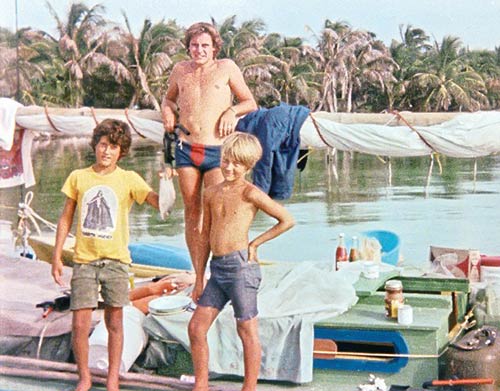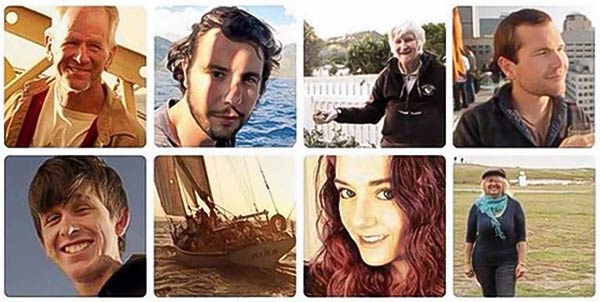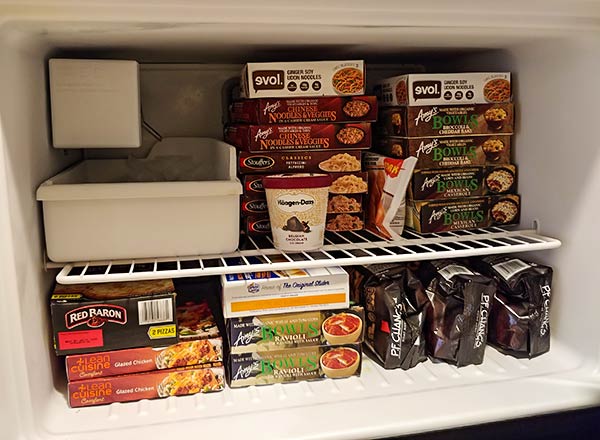September 27, 2019
d. The Bad Decisions of Others
We cruisers all make mistakes out here; so naturally we’re reluctant to criticize each other because at some point, as the Main Ingredient song goes, “Everybody plays the fool, sometime / There’s no exception to the rule …”
So when we see someone make a foolish choice, we’re often loathe to criticize unless that mistake could be truly harmful. After all, sometime, somewhere, when we least expect it, it will be Our Turn. This lifestyle also has an underlying theme of independence and freedom; so unless you’re infringing on someone else, you can pretty much do your own thing.
The unfortunate flip side of this is that someone else’s bad decision can have consequences for those around them. In a nutshell, their problem can quickly become everyone’s problem. Naturally, it can be exasperating to witness someone making a mistake that could end up pulling us in.
One example (Fiji, 2015): Rich and I were motoring through a wide channel between an island and a barrier reef. Not far away from us was another cruiser who, for some reason, decided he wanted to be outside that reef and made an abrupt turn towards it. Maybe he believed there was an opening or didn’t know the reef was there, but in any case he was headed directly for it.
Now it was urgently time for us to become busybodies, not just to be helpful but because we’d have to go to his aid if he got stranded. Rich tried multiple times to hail him on the radio but got no response, and we watched helplessly while he ran straight into the reef. Thankfully he got off it and sailed on; but for a time we were unwilling participants in that scenario.
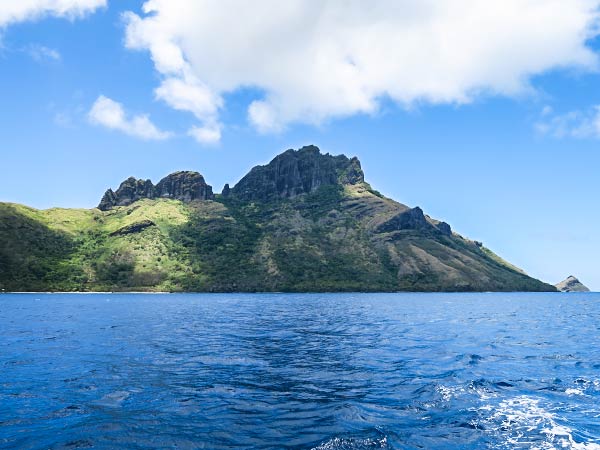
Another example (Tonga, 2014): Three cruising boats had befriended each other in Tonga during our second season there and were traveling together. One of the captains, who we’d met, was frankly in the unfortunate zone of being too old to effectively operate his own boat. His wife had been with him (and probably helped him be fully functional) but had to leave for a family emergency, leaving him on his own. Thus it was lucky for him that the two other boats had taken him under their wings.
This worked out well until this man decided he wanted to linger in an anchorage and meet up with his friends later. I’m sure his friends weren’t too happy about that as the trip to the next spot, while not far away, did involve some weaving through a reef-strewn area. But what could they do?
Rich and I were ashore when we saw him finally pull anchor and head off to join his friends. Knowing him as we did, we wondered if he’d successfully maneuver through the reefy area. As it turned out, he didn’t; he ended up hitting a reef hard and running up on it. Now, he was very stuck. The man put out a call to his friends for help. A local resort owner overheard and zoomed out in his panga to help, while one of the man’s friends left their comfy anchorage, taking his own boat into the reefs to help with the rescue. His other friend, probably wanting to wash his hands of the situation, stayed put.
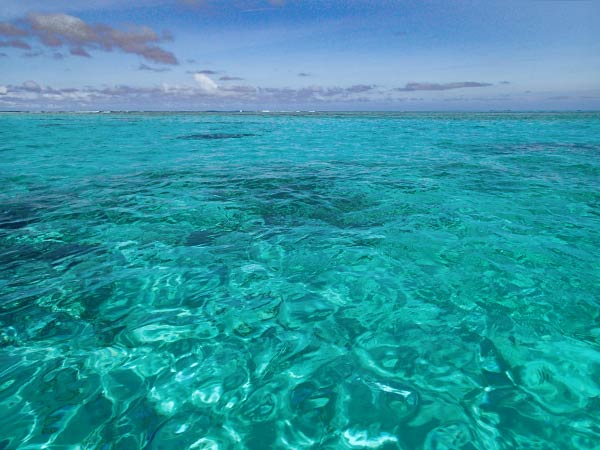
The panga and the yacht were able to pull his boat off the reef, and luckily it still floated. That evening all of us ended up ashore at the resort, and while the guy who’d driven up on the reef seemed OK, the poor friend who’d gone to his rescue was pretty traumatized, his hands shaking so badly he could barely light his much-needed cigarette! I guess the rescue had been hair-raising and difficult, along with the stress of dealing with a friend who really did not have the skills to be out here on his own. (Rich and I, having dealt with our elderly parents, know what it’s like when they won’t give up their independence even when they’ve become a hazard to themselves and others.)
One of our most serious examples happened in Tonga in 2012. A mass of cruising yachts, having checked out of Vava’u, were resting up in the Port Maurelle anchorage before starting the passage to New Zealand. This is when everyone got the startling news: a huge low was forming and predicted to hit the area between Tonga and New Zealand. It would be bad, really bad. So bad that a few boats who’d actually started the passage were turning around and heading back to Tonga.
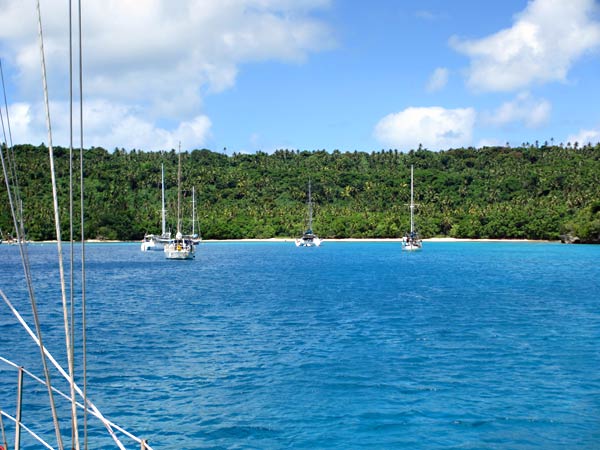
Those of us remaining in Tonga needed find safe harbor, and those cruisers who’d checked out and were sitting in Port Maurelle had a big decision to make: head back into Vava’u even if it meant having to check back into the country, or try to outrun the storm. It quickly became apparent that it would not be possible to do the latter, and that the group in Port Maurelle needed to head back to safe harbor. All except two of them did just that. One of those two boats, Windigo, opted to head out on the passage in spite of the forecast. I’m not sure who the other boat was, but it may have been a boat called Adventure Bound.
Why these cruisers decided to head out into what was coming, I can’t imagine. But what’s interesting is the decision was only “bad” for Windigo. Adventure Bound was a good seafaring boat with an experienced and capable captain. Windigo was, in our opinion, a bit of a tub (when I’d seen it previously I couldn’t help but think “Winnebago,” because it reminded me of those big motor homes). If what we heard since heard was true, that Windigo was taking paying guests aboard in tropical ports, the roomy boat was probably perfect for that. But this boat was best suited for coastal cruising conditions; so heading out into a near-cyclone was a really bad decision.
Unfortunately for Adventure Bound, Windigo was rolled and the couple aboard injured and in need of rescue. Adventure Bound, well ahead of them, felt duty-bound to turn around and slowly beat their way north through horrific conditions in order to stand by while a diverted cargo ship rescued the couple from Windigo. It’s not a surprise that Adventure Bound sustained damage to their steering and ended up having to hand-steer to New Zealand after the rescue.
The ripple of Windigo’s bad decision did not stop with the damage to Adventure Bound or expenses incurred by the cargo ship that had been diverted to rescue them. There were a lot of boats yet to make the passage (including us) who now had to contend with the idea of a blacked out, stricken, drifting yacht somewhere between Tonga and New Zealand.
As it happened, one boat actually got their prop tangled a line trailing off the life raft dropped for Windigo by a New Zealand plane. That crew had to go into the ocean to cut the line off their prop, highly dangerous in ocean swells. Another boat nearly collided with the dark hulk of Windigo itself.
The rest of us had to set off with the knowledge of this floating death trap out there somewhere, another stress in an already-stressful situation. Rich and I were glad for our radar and can’t imagine how stressful this must have been for people who didn’t have a good working radar. Keeping a visual watch doesn’t do much good if there’s a black object, large swells, and a pitch black night.
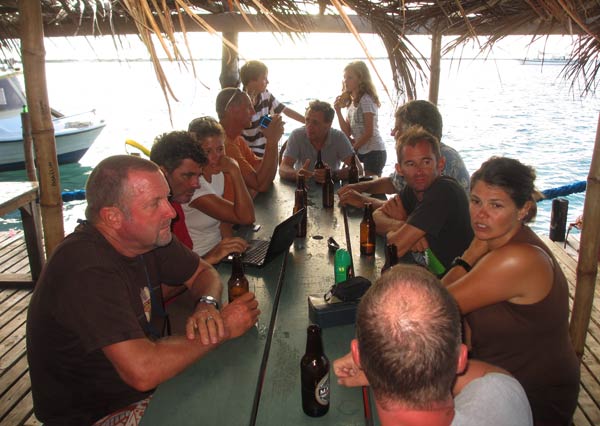
Rich and I personally don’t criticize the Windigo couple for leaving the boat as they had both been knocked unconscious and the captain was injured. But we were unhappy that they didn’t scuttle the boat, opting to leave it floating out there in hopes of retrieving it.
In the end, Windigo eventually ended up wrecked on the Australian coast. During the time she would have been drifting towards that area, a single-hander en route from Fiji to Australia hit a mysterious object in the night and his boat was sunk. Could it have been Windigo? Possibly, but we’ll never know. What we do know is that Windigo’s bad decision ended up affecting many people.
On a final note: It’s not always easy to intervene even when the problem is obvious, but it’s even less so when you’re near someone taking a foolish risk. Such was the case the last time we were in Minerva when one boat, captained by young guys having fun, anchored out in the pass into the atoll to spearfish. At the end of the afternoon their engine had conked out, and they had to be rescued by someone who actually took their own boat out there to retrieve them. The rescuers were accompanied by about seven dinghies from other boats standing by to help. It was a relief when the boat in trouble was towed back in safe and sound.
This event wasn’t a big deal, but we later heard these same guys headed back out to the pass the next day to fish again! We’d left Minerva that morning, but had we remained I would have been incensed. Repeating your risky behavior is no way to express your gratitude to your rescuers, but I also have a problem with their spearfishing in a pass where tiger sharks are frequently spotted. Yes, it’s their business if they want to take that risk, but what happens if one of them is attacked and injured? Whose problem is it then? It’s everyone in the anchorage’s problem; that’s whose problem it is. The few people who remained would have to deplete their own medical supplies, including very hard-to-get effective pain medication, and try to arrange a rescue.
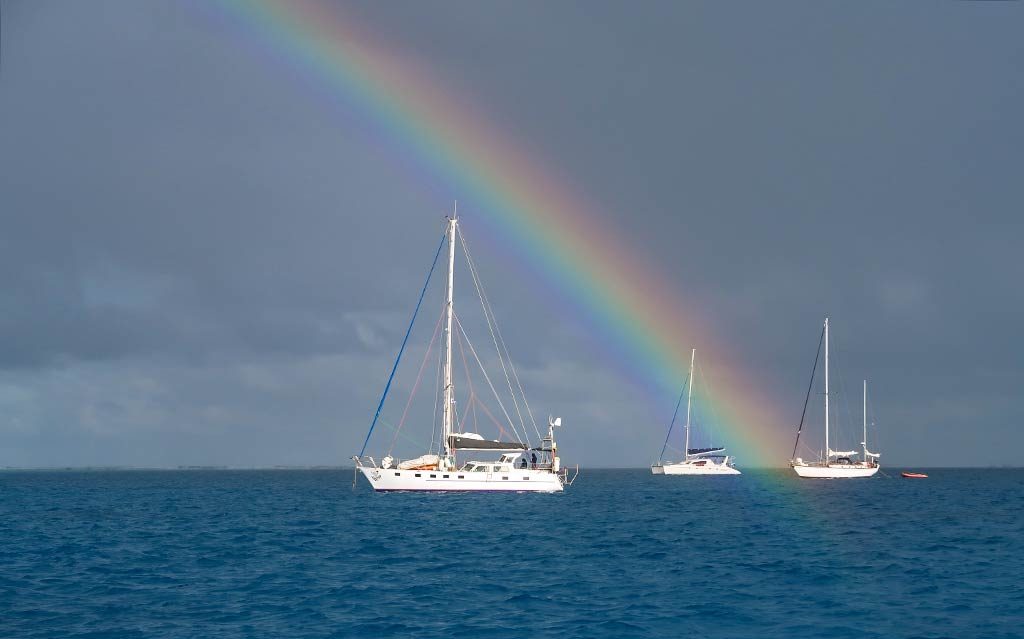
My point in writing this post is, when weighing the greatest hazards to a cruising boat, bad decisions by others are way up there near the top of the list. All we can do, I suppose, is to try to hail any boat we see headed towards trouble, to butt our nose into their business even if the interference isn’t welcome.
During an interview after they lost their boat, Windigo’s owners claimed the storm wasn’t forecast when they left Tonga, but that simply isn’t true. Everyone knew about the storm at that point; so the couple on Windigo either didn’t want to admit they made the deliberate decision to head out or that they didn’t bother to check the most recent weather predictions. If it was the latter, I certainly hope someone would have radioed them to make sure they knew the forecast, that the entire anchorage would make sure everyone was apprised of the situation. After hearing that people were incredulous as they watched Windigo motor off, I can’t imagine that someone didn’t pick up the radio and at least try to intervene.
Coming up, a few more troublesome issues caused by other boaters. Do they never end? –Cyndi
Other posts in the series:
Real Cruising Danger #1: Other Boaters (Part 1)
Real Cruising Danger #1: Other Boaters (Part 2)
Real Cruising Danger #1: Other Boaters (Part 3)
Real Cruising Danger #1: Other Boaters (Part 4) (this post)
Real Cruising Danger #1: Other Boaters (Part 5)
Real Cruising Danger #2: The Sheep Mentality

